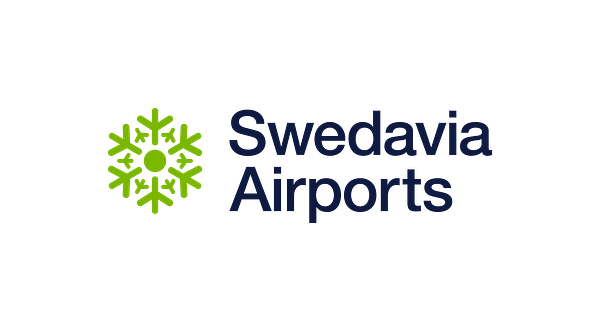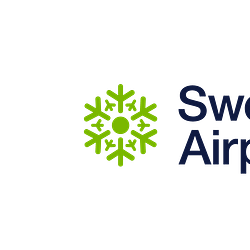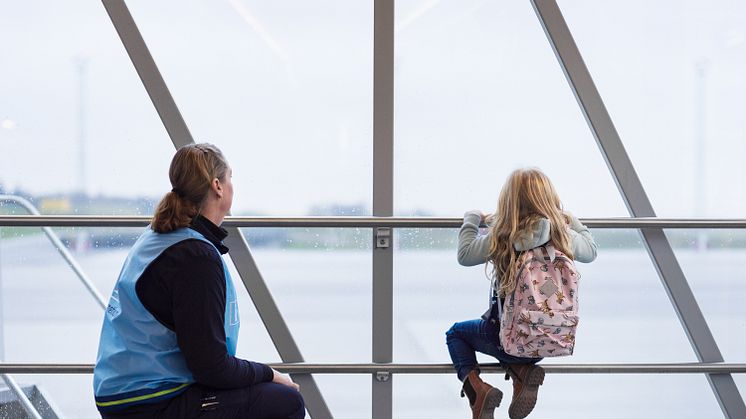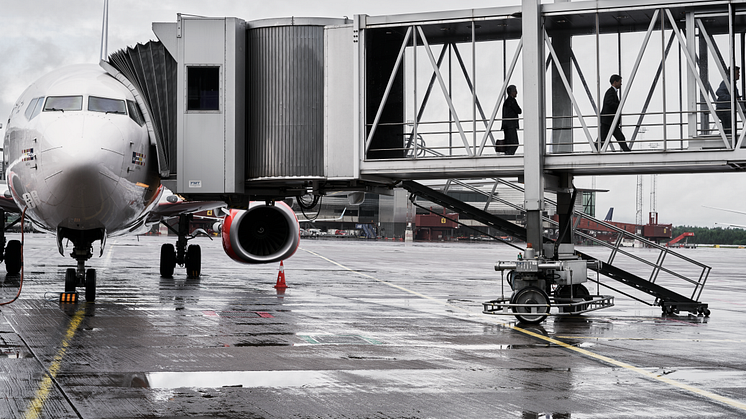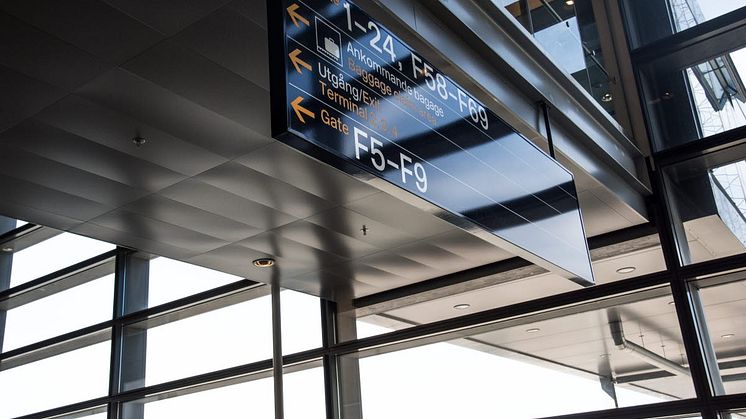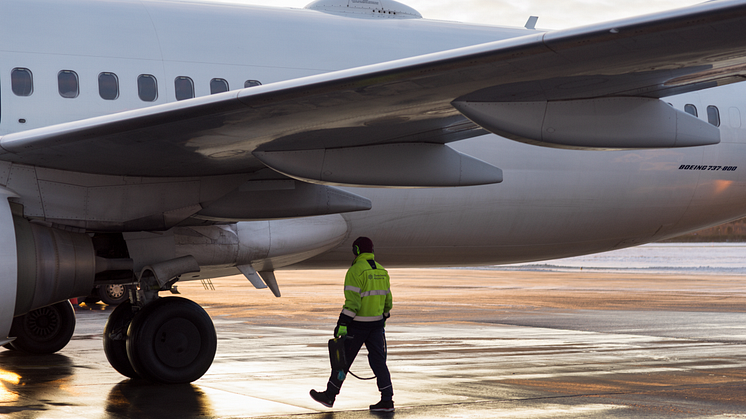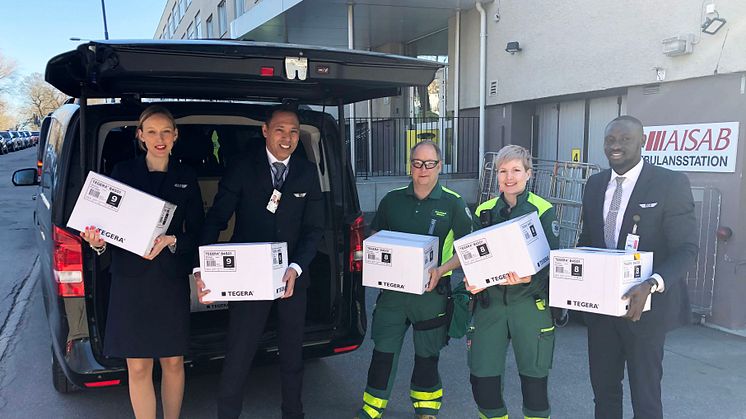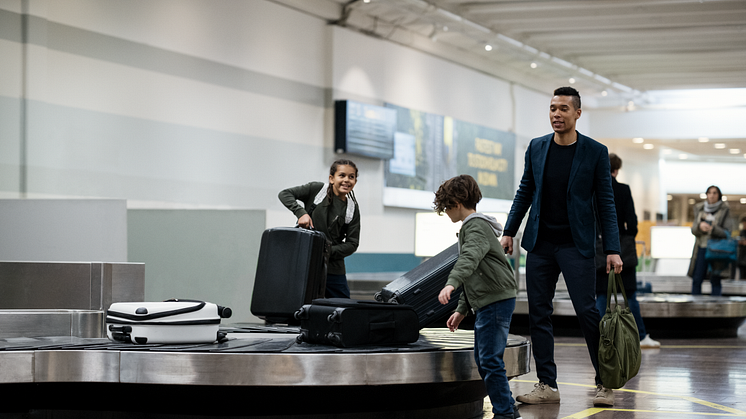
Press release -
Swedavia’s traffic statistics for March 2020
In March, more than 1,317,000 passengers flew via Swedavia’s ten airports, a full 60 per cent decrease compared to the same month in 2019. The effects of the COVID-19 coronavirus pandemic had a significant impact since airlines cut all or reduced their traffic. The downturn accelerated during the month and has continued in April, so far with a decrease of about 97 per cent. A number of Swedavia’s airports today have no scheduled air traffic at all.
The total number of international passengers at Swedavia’s airports in March was 841,000, which is a 60 per cent decrease compared to the same month last year. The total number of domestic passengers was 476,000, which is a 58 per cent decrease.
The effects of the Covid-19 pandemic have gradually widened in April as a result of measures taken by countries and authorities to counter the spread of the virus. Meanwhile, airlines have reduced their capacity in the face of reduced demand.
So far in April, the decrease in passenger volume is about 97 per cent. Both domestic and international traffic in Sweden are thus greatly limited, and a number of airports, including Bromma Stockholm Airport, have no scheduled air traffic at all.
“The coronavirus crisis is having a dramatic impact on society and is hitting Swedavia, our customers and partners – who depend on air travel – full force. The conditions needed to carry out scheduled air traffic, but also commercial airport operations, basically no longer hold. However, our airports play an important role for infrastructure, and we are doing our utmost to maintain Sweden’s access for the passenger traffic that still exists, but also for mail and cargo as well as ambulance flights,” says Jonas Abrahamsson, president and CEO of Swedavia.
Stockholm Arlanda Airport, Sweden’s largest airport, had a total of 842,000 passengers in March, which is a decrease of 60 per cent compared to the same month last year. There were a total of 648,000 international passengers, which is a decrease of 60 per cent, while there were 194,000 domestic passengers, a decrease of 58 per cent.
Göteborg Landvetter Airport had a total of 189,000 passengers in March, which is a decrease of 61 per cent compared to the same month last year. The total number of international passengers was 150,000, which is a decrease of 61 per cent. Domestic travel decreased 64 per cent to 39,000 in March.
At Bromma Stockholm Airport, there were a total of 79,000 passengers in March, which is a decrease of 62 per cent compared to March last year. International travel decreased 69 per cent, while domestic travel decreased 60 per cent.
In line with the traffic trend so far this year, Swedavia’s regional airports also showed local differences in the travel pattern in March. The total number of passengers at these airports was 207,000, which is a decrease of 58 per cent.
For many years, Swedavia has carried out ambitious sustainability work. All ten of its airports shall have zero emissions of fossil carbon dioxide from their own operations by the end of 2020. Swedavia also works actively to promote the industry’s transition to bio fuel and has the goal that five per cent of all fuel used to refuel aircraft at Swedish airports shall be fossil-free by 2025. Since 2016, Swedavia buys bio aviation fuel equivalent to the amount the company uses on flights for business purposes, about 450 tonnes of fuel a year.
Traffic statistics for Swedavia’s airports are available (in Swedish) at www.swedavia.se under “Om Swedavia/Statistik”. https://www.swedavia.se/om-swedavia/statistik/.
For further information, please contact Swedavia’s press office at tel. +46 (0)10-109 01 00 or press@swedavia.se.
Topics
Categories
Swedavia is a State-owned group that owns, operates and develops ten airports across Sweden. Our role is to create the access Sweden needs to facilitate travel, business and meetings – in Sweden, in Europe and around the world. Safe, satisfied passengers are the foundation of our business. Swedavia is a world leader in developing airports with the least possible environmental impact. The Group has revenue of over 6.2 billion Swedish kronor and some 3,000 employees.
